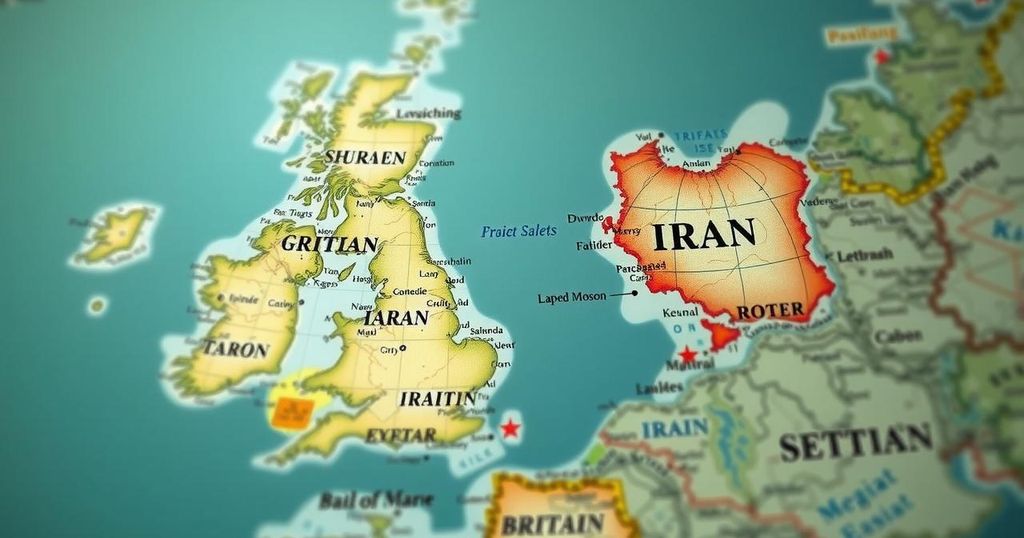Iran Cites 19th Century Maps in Ongoing Dispute Over Strategic Islands
Iran has invoked 19th-century British maps to assert ownership of three islands disputed with the UAE, amid rising tensions following an EU condemnation of Iran’s claims. The islands are strategically located at the Strait of Hormuz, and the sovereignty dispute complicates Iran’s relations with both Gulf states and the EU, as historical narratives continue to shape contemporary geopolitical alignments.
Iran is referencing historical British maps from the 19th century in its ongoing territorial dispute with Gulf states concerning three strategic islands located at the entrance of the Strait of Hormuz. The contention has intensified following a European Union (EU) statement condemning Iran’s “occupation of the islands,” asserting that this act violates sovereignty and international laws. In contrast, Iranian officials argue that these maps depict the islands as historically part of Iran, highlighting the sensitivities surrounding territorial integrity amid efforts for stronger relations with Gulf partners and the EU. The disputed islands, namely Abu Musa, Greater Tunb, and Lesser Tunb, were incorporated into historical claims by the United Arab Emirates (UAE) following Britain’s withdrawal in 1971. Although major contention lies in the Emirati claims over these islands, expert testimonies and historical documents are presented by both parties. Iranian diplomacy has floundered in efforts to reject international arbitration requests from the UAE, which has garnered international support against Iran, complicating the relationship further. The Iranian regime faces internal pressures as the matter at hand generates a strong nationalistic sentiment, highlighted by prominent displays of territorial claims. Recent assertions by Iranian officials underscore a commitment to retaining control over the islands amidst external criticism. In a public statement, Abbas Araghchi, Iran’s foreign minister, emphasized, “The three islands have always belonged to Iran and will forever remain as such.” His statements signify a critical stance against European interference in regional affairs. The territorial dispute underscores a broader geopolitical concern in the Gulf region, where historical legacies and national identities collide. As negotiations continue, the delicate balance between strategic interests and diplomatic relations remains highly fragile, especially with rising tensions in the region.
The territorial dispute over the islands of Abu Musa, Greater Tunb, and Lesser Tunb has its roots in historical events dating back over a century. Following Britain’s withdrawal from its protectorate status in the region in 1971, Iran unilaterally seized control of the islands, with claims dating back to ancient Persian sovereignty. The situation has persisted as a major point of contention between Iran and the UAE, exacerbated by contemporary geopolitical dynamics involving the EU, regional alliances, and Iranian aspirations for influence in the Gulf.
The ongoing dispute over the ownership of three critical islands, rooted in historical claims and exacerbated by recent diplomatic tensions, illustrates the complexities of regional relations in the Gulf. The significance of these islands extends beyond mere territorial assertions, impacting broader strategic calculations involving international partnerships. Both Iran and the UAE continue to assert their claims amid heightened scrutiny, emphasizing the need for diplomatic engagement to resolve historical grievances and foster cooperation.
Original Source: www.theguardian.com




Post Comment